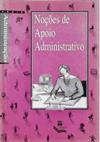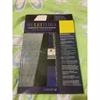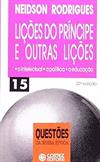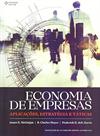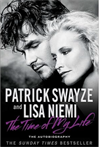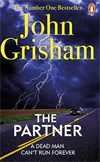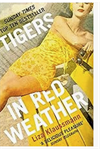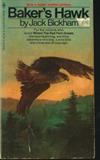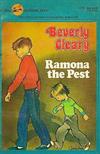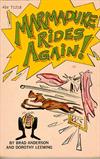
The Science Fiction Hall of Fame, Vol. 1
Registered by  GoryDetails
GoryDetails of Nashua, New Hampshire USA on 2/18/2012
of Nashua, New Hampshire USA on 2/18/2012
 This Book is Currently in the Wild!
This Book is Currently in the Wild!
 GoryDetails
GoryDetails of Nashua, New Hampshire USA on 2/18/2012
of Nashua, New Hampshire USA on 2/18/2012 This Book is Currently in the Wild!
This Book is Currently in the Wild!
1 journaler for this copy...
I found this slightly-battered hardcover at the Used Book Superstore (they're having a sale all this weekend!), and as it contains a nice selection of classic SF stories I nabbed it. Among my favorites:
John Campbell's "Twilight", which deals with time travel - and a cautionary look at the possible future.
"Mimsy Were the Borogoves" by Lewis Padgett (which was - very loosely - adapted for the 2007 film The Last Mimzy - features mysterious toys sent from the future to teach children how to expand their minds, using "The Jabberwocky" as a secret formula. More chilling than it might sound!
"Arena" by Fredric Brown has a man wake up to find himself captive in an arena run by aliens, pitted against other alien lifeforms in a gladiator contest to the death. This one made a very strong impression on me when I first read it in my early teens, what with the restrictions on the combatants, the treatment of the poor little lizards, and the way in which our hero figures out what to do.
"Mars is Heaven!" by Ray Bradbury is one of the more chilling of his Martian Chronicles, demonstrating one of the ways in which a telepathic species might defend itself against invaders.
C. M. Kornbluth's "The Little Black Bag" has a medical kit from the future wind up in 1950s America, where it's found by a down-on-his-luck alcoholic doctor. When he discovers that he can use it to cure ailments far beyond his skill - and some far beyond anyone's skill in that time - he sets up a clinic. But his sister thinks they should use the implements to make a fortune, and the conflict results in tragedy. (This one was adapted for TV several times, including on "Night Gallery".)
"Born of Man and Woman" by Richard Matheson - this one's very, very disturbing. It's told in the first person by someone who seems to have mental problems, and to be living in an abusive environment. As the story progresses we learn that there's something much, much worse going on...
Arthur C. Clarke's "The Nine Billion Names of God" - this one's been reprinted and referenced so often that it's practically a meme. The idea is that a Tibetan monastery has requested the aid of computer experts to speed up their long-term project to compute the 9 billion names of God - at the end of which time the universe will end.
"It's a Good Life" by Jerome Bixby - this one inspired a "Twilight Zone" episode, and is one of the most disturbing stories I've come across. A child was born with mysterious powers of altering reality, and the first thing he did was to separate the town of his birth from the rest of reality. [Whether the town's somewhere else or if there simply is nothing else is something the townsfolk don't know.] The story has a claustrophobic feel, since everyone in the town has to be careful what they do, say, and even think whenever young Anthony is around; if they anger him he can retaliate in a horrible fashion, and even if he likes them, his idea of doing favors may not be all the pleasant either.
Tom Godwin's "The Cold Equations" is another classic, and sets up a situation in which a foolish but innocent young girl must be sacrificed in order to save many more lives. This one has its own TV Tropes page, and has been the subject of many attempts to provide a less-drastic resolution, but even if the author's setup was deliberately heavy-handed in order to force the difficult decision, it's still true that sometimes such decisions must be made.
"Flowers for Algernon" by Daniel Keyes introduces us to Charlie Gordon, a retarded man who takes part in an experiment to improve intelligence. This works, both on the rat Algernon and on Charlie, and the story - told from Charlie's viewpoint - changes from the halting, ungrammatical prose of the early Charlie to increasingly-brilliant discourse as he reaches genius-level. But things don't stay that way... [The 1968 film Charly was based on the story.]
And there are many more classic tales here as well - excellent collection!
John Campbell's "Twilight", which deals with time travel - and a cautionary look at the possible future.
"Mimsy Were the Borogoves" by Lewis Padgett (which was - very loosely - adapted for the 2007 film The Last Mimzy - features mysterious toys sent from the future to teach children how to expand their minds, using "The Jabberwocky" as a secret formula. More chilling than it might sound!
"Arena" by Fredric Brown has a man wake up to find himself captive in an arena run by aliens, pitted against other alien lifeforms in a gladiator contest to the death. This one made a very strong impression on me when I first read it in my early teens, what with the restrictions on the combatants, the treatment of the poor little lizards, and the way in which our hero figures out what to do.
"Mars is Heaven!" by Ray Bradbury is one of the more chilling of his Martian Chronicles, demonstrating one of the ways in which a telepathic species might defend itself against invaders.
C. M. Kornbluth's "The Little Black Bag" has a medical kit from the future wind up in 1950s America, where it's found by a down-on-his-luck alcoholic doctor. When he discovers that he can use it to cure ailments far beyond his skill - and some far beyond anyone's skill in that time - he sets up a clinic. But his sister thinks they should use the implements to make a fortune, and the conflict results in tragedy. (This one was adapted for TV several times, including on "Night Gallery".)
"Born of Man and Woman" by Richard Matheson - this one's very, very disturbing. It's told in the first person by someone who seems to have mental problems, and to be living in an abusive environment. As the story progresses we learn that there's something much, much worse going on...
Arthur C. Clarke's "The Nine Billion Names of God" - this one's been reprinted and referenced so often that it's practically a meme. The idea is that a Tibetan monastery has requested the aid of computer experts to speed up their long-term project to compute the 9 billion names of God - at the end of which time the universe will end.
"It's a Good Life" by Jerome Bixby - this one inspired a "Twilight Zone" episode, and is one of the most disturbing stories I've come across. A child was born with mysterious powers of altering reality, and the first thing he did was to separate the town of his birth from the rest of reality. [Whether the town's somewhere else or if there simply is nothing else is something the townsfolk don't know.] The story has a claustrophobic feel, since everyone in the town has to be careful what they do, say, and even think whenever young Anthony is around; if they anger him he can retaliate in a horrible fashion, and even if he likes them, his idea of doing favors may not be all the pleasant either.
Tom Godwin's "The Cold Equations" is another classic, and sets up a situation in which a foolish but innocent young girl must be sacrificed in order to save many more lives. This one has its own TV Tropes page, and has been the subject of many attempts to provide a less-drastic resolution, but even if the author's setup was deliberately heavy-handed in order to force the difficult decision, it's still true that sometimes such decisions must be made.
"Flowers for Algernon" by Daniel Keyes introduces us to Charlie Gordon, a retarded man who takes part in an experiment to improve intelligence. This works, both on the rat Algernon and on Charlie, and the story - told from Charlie's viewpoint - changes from the halting, ungrammatical prose of the early Charlie to increasingly-brilliant discourse as he reaches genius-level. But things don't stay that way... [The 1968 film Charly was based on the story.]
And there are many more classic tales here as well - excellent collection!
Journal Entry 2 by  GoryDetails
GoryDetails at Post Office Bookswap Shelf (UBCZ), 353 Middlesex Rd. in Tyngsboro, Massachusetts USA on Wednesday, March 19, 2014
at Post Office Bookswap Shelf (UBCZ), 353 Middlesex Rd. in Tyngsboro, Massachusetts USA on Wednesday, March 19, 2014
 GoryDetails
GoryDetails at Post Office Bookswap Shelf (UBCZ), 353 Middlesex Rd. in Tyngsboro, Massachusetts USA on Wednesday, March 19, 2014
at Post Office Bookswap Shelf (UBCZ), 353 Middlesex Rd. in Tyngsboro, Massachusetts USA on Wednesday, March 19, 2014
Released 10 yrs ago (3/19/2014 UTC) at Post Office Bookswap Shelf (UBCZ), 353 Middlesex Rd. in Tyngsboro, Massachusetts USA
WILD RELEASE NOTES:
I plan to leave this book on the book-swap shelf in the Tyngsboro post office lobby at around 3:30 or so; hope the finder enjoys it!
*** Released for the 2014 Four Elements challenge, for the embedded "silver" in the author's name. ***
*** Released as part of the 2014 Movie release challenge. ***
*** Released for the 2014 TV Series challenge. ***
*** Released for the 2014 Four Elements challenge, for the embedded "silver" in the author's name. ***
*** Released as part of the 2014 Movie release challenge. ***
*** Released for the 2014 TV Series challenge. ***
